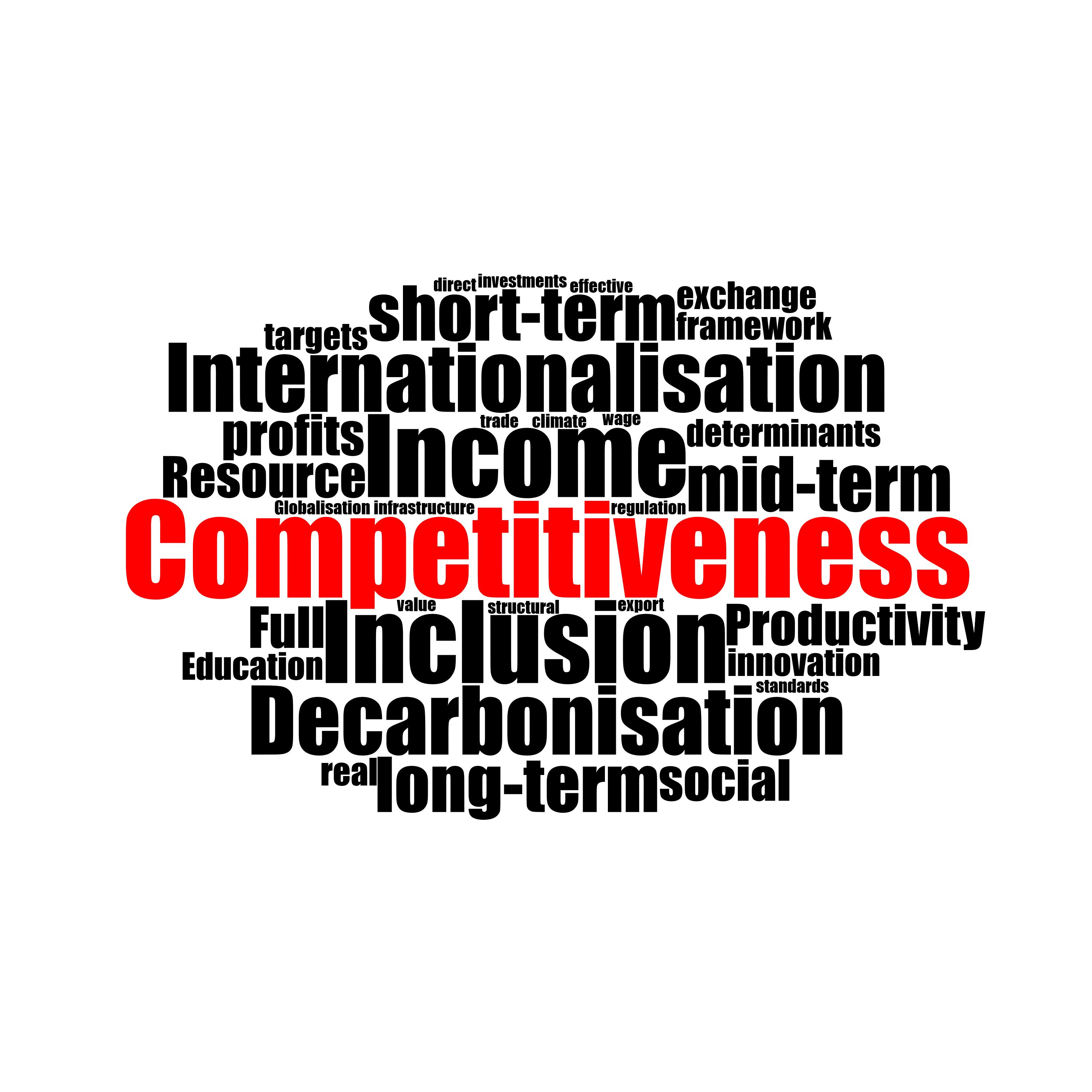The Thematic Platform "Competitiveness" pursues three objectives:
theoretical foundation and rationale of measurement concepts and economic policy,
compilation of systematic and thus clear indicator systems on the outcomes and determinants of competitiveness,
development of expertise in selected policy areas of competitiveness.
 By competitiveness we mean the ability of an economic system to generate high real incomes and to improve social and environmental
living conditions under continuous change and the ongoing adaptation of framework conditions. In research practice, the term
summarises different findings on the strengths and weaknesses of an economy. Indicators of competitiveness are important yardsticks
for the success of economic policy and at the same time point to necessary reforms.
By competitiveness we mean the ability of an economic system to generate high real incomes and to improve social and environmental
living conditions under continuous change and the ongoing adaptation of framework conditions. In research practice, the term
summarises different findings on the strengths and weaknesses of an economy. Indicators of competitiveness are important yardsticks
for the success of economic policy and at the same time point to necessary reforms.
Competitiveness encompasses many dimensions, and the empirical findings can be correspondingly diverse – sometimes ambivalent. From a regional point of view, competitiveness at different levels of the locational hierarchy (between countries, regions or locations) is an issue, with different spheres of influence in the design of economic policy. The differentiation of the relevant competitive environment as the "benchmark" of the analysis is becoming increasingly important, but also complex, because the progressive fragmentation of value chains requires successful positioning both in the sectoral and in the functional division of labour.
Between different dimensions of competitiveness, synergies or conflicts can arise. In order to ensure that long-term objectives are not neglected in favour of short-term aspects, competitiveness requires the consideration of different time horizons:
In the short term, the focus is on adaptability to changing framework conditions. Imbalances should be avoided and macroeconomic stability maintained. Typical indicators are, for example, real effective exchange rates, unit labour costs, inflation or the current account balance. Monetary policy, fiscal policy and wage policy are among the most important macroeconomic control factors.
In the medium term, it is a question of the dynamics of the economic system, which is reflected both in productivity growth and in the goals of full employment, high market shares in exports and improvements in energy and resource efficiency. Key determinants include investment (including social investment), innovation, internationalisation as well as competition and regulation.
In the long term, the quality of life is at the centre of attention. Priorities are sustainable high real incomes, social inclusion and participation as well as the improvement of the natural environment and the avoidance of irreversible climate change. The focus is on aspects relevant to competition (e.g., resource efficiency or the social system as a productive factor).
A particular challenge is to advance the implementation of these goals simultaneously.
Examples of the relevance of different time horizons for competitiveness
| Time horizon | Changes in the framework conditions | Response to changes | Aims |
| Short term | Fluctuations in demand, exchange rates, prices, etc. | Profit margins, wage policy, public spending, monetary policy, etc. | Smoothing of cyclical fluctuations and crises (labour, production, prices) |
| Medium term | Technological change (e.g., standards), globalisation (e.g., value chains) | Qualification, investment, innovation, internationalisation (trade agreements, foreign investment) | Productivity growth, full employment, high international market shares, energy and resource efficiency |
| Long term | Artificial intelligence, societal demands, climate change | Education, public infrastructure, environmental and health standards, etc. | High real incomes, social inclusion and participation, decarbonisation |
The WIFO Industry Survey deals with the medium- to long-term strategies and positioning of Austrian companies in international competition. It also
covers questions on the importance of different location factors for companies in their quest for sustained competitive advantage.
This survey represents an important data basis for the work of the Thematic Platform "Competitiveness".